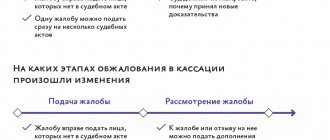The institution of pardon exists in almost all countries of the world; pardon dates back to the times of Ancient Rome. The only difference is in the persons who were granted the right to pardon. Thus, in Ancient Rome, the college of Vestal Virgins had this right; in the United States, both the president and state governors had this right. In Russia, according to Art. 89 of the Constitution of the Russian Federation, pardon is carried out by the President on behalf of the Russian Federation, this is his exclusive prerogative, who independently determines its grounds and limits in relation to a particular person based on the principles and norms enshrined in the Constitution of the Russian Federation and criminal legislation. In accordance with Part 1 of Art. 85 of the Constitution of the Russian Federation, pardon is carried out by the President of the Russian Federation in relation to an individually designated person. Domestic lawyer Chicherin B.N. considered pardon as a means of mitigating the criminal law, criminologist A.F. Kistyakovsky. was of the same opinion.
Who has the right to ask for clemency?
According to Part 3 of Art. 50 of the Constitution of the Russian Federation, every convicted person has the right for a crime ask for mercy or mitigation of punishment. Based on Art. 19 of the Constitution of the Russian Federation, no one can be discriminated against in their right to apply for a pardon. This means that the right to ask for pardon does not at all depend on such circumstances as the category of crime for which the convicted person is serving a sentence, the size of the punishment imposed on him and the conditions for its execution (Resolution of the Constitutional Court of the Russian Federation of November 26, 2002 N 16-P). Currently, no regulations provide for the possibility of pardoning a convicted person without his or her petition. However, despite this, neither the Constitution of the Russian Federation, nor Decree No. 1500 of December 28, 2001, nor Art. 176 of the Criminal Executive Code of the Russian Federation does not contain any rules regarding who should apply for a pardon. Does this mean that an application for pardon can be submitted not only by the convicted person himself, but also by his relatives and lawyer? From the practice of regional human rights centers, there are known cases of refusal to consider applications for pardon; the reason for such refusals is the filing of an application only by relatives without a corresponding request from the convicted person. Therefore, it is best to submit a petition for pardon simultaneously with the request of the convicted person.
Who can receive a pardon?
The practice of pardons is such that those most likely to receive a pardon are those who satisfy one or more of the following conditions:
Related news
Khodorkovsky's lawyers refuse to comment on their client's pardon
1. First conviction.
2. Advanced age (over 50 years).
3. The crime did not entail serious consequences for the victims (death, serious harm to health, disability).
4. The convict became disabled in prison (you should not think that this is a mercy for the convict, it is simply often cheaper to keep a disabled person at home or in a nursing home, provided that he does not pose a danger).
5. The convicted person has small children left behind, and there are no other relatives willing to take care of them (unfortunately, this circumstance rarely serves as an argument; the children are simply sent to an orphanage).
What is the procedure for filing a petition for pardon?
According to Art. 176 of the Criminal Executive Code of the Russian Federation, a convicted person has the right to appeal to the President of the Russian Federation with a petition for pardon. The convicted person submits a petition for pardon through the administration of the institution or body executing the sentence, which notifies the convicted person that the petition for pardon has been sent to the territorial body of the penal system against a signature. Refusal to submit an application for pardon is not allowed. No one may be denied consideration of a petition for clemency, but the petition for clemency must be submitted by the institution or body executing the punishment. A petition for pardon in the form of expungement of a criminal record is sent by the applicant independently to the pardon commission on the territory of the constituent entity of the Russian Federation at the applicant’s place of residence. The President, in the Regulations to the Decree “On Pardon Commissions in the Territories of the Subjects of the Russian Federation” No. 1500 dated December 28, 2001, as amended on June 25, 2012, clearly defined the procedure for submitting applications for pardon, according to which the convicted person applies for pardon to the President of the Russian Federation in writing. Next, the application for pardon must go through the chain of command:
- the territorial body of the penal system; — commission on issues of pardon on the territory of a constituent entity of the Russian Federation (presents a conclusion on the advisability of applying the act of pardon); — the highest official of a constituent entity of the Russian Federation (submits to the President of the Russian Federation a proposal on the advisability of applying an act of pardon); - President of the Russian Federation.
The main functions of the commission on issues of pardon on the territory of a constituent entity of the Russian Federation are: - preliminary consideration of applications for pardon of convicted persons; — preparation of conclusions on pardon materials for further presentation to the highest official of the constituent entity of the Russian Federation; — exercising public control over the timely and correct execution in the territory of a constituent entity of the Russian Federation of the decrees of the President of the Russian Federation on issues of pardon; — preparation of proposals to improve the efficiency of the activities of institutions and bodies of the penal system of the Ministry of Justice of the Russian Federation on issues of pardoning convicts.
Who can't count on leniency?
In addition to the list of categories of people who can apply, there is also a list of people who are unlikely to be granted a pardon:
- violators of order and rules in prison;
- persons who intentionally committed crimes during the probationary period;
- prisoners released under amnesty at the time of consideration of the application;
- criminals who were previously released on parole.
Important! The decision on pardon is not made again. If the offender commits an offense again, he will not be forgiven.
What information is taken into account when considering a pardon application?
When considering a petition for pardon, the following are taken into account: - the nature and degree of public danger of the crime committed; - the behavior of the convicted person while serving or executing the sentence; — term of the served (executed) sentence; - commission of a crime by the convicted person during the period of probation appointed by the court; - earlier application of an amnesty, pardon or conditional release from punishment in relation to a convicted person; — compensation for material damage caused by the crime; — information about the identity of the convicted person: health status, number of convictions, marital status, age; - other circumstances, if the commission considers them significant for considering the application.
Pardoning convicts: how to draw up and where to send a petition for pardon?
The article was prepared using
legal acts according to the status
as of April 02, 2021
Lawyer Maslov Evgeniy Dmitrievich
On April 14, 2021, a new version of the Regulations on the procedure for pardoning convicts and releasing from criminal liability persons who contributed to the detection of crimes and eliminating the consequences of their commission in the Republic of Belarus comes into force.
It is worth noting that the Decree contains 2 different procedures that must be separated:
1. pardoning convicts;
2. exemption from criminal liability of persons who contributed to the detection of crimes and the elimination of the consequences of their commission.
These categories of citizens will have different criminal procedural status, have different rights and obligations, which means the procedure for sending petitions in their interests will be different.
Petitions for pardon are sent by convicted persons, i.e. those persons in respect of whom the court verdict has entered into legal force, and they are already serving a sentence imposed by the court (for example, imprisonment).
A petition for release from criminal liability of persons who contributed to the detection of crimes and the elimination of the consequences of their commission is sent by persons against whom a preliminary investigation is being carried out and the criminal case has not yet been brought to court.
More information about the legal assistance of a lawyer on the issue of exemption from criminal liability of persons who contributed to the detection of crimes and the elimination of the consequences of their commission is described in our article.
The procedure for pardoning convicted persons will change from April 14, 2021; for this reason, clarification of some of its new provisions is required.
Pardon is carried out on the basis of the Decree of the President of the Republic of Belarus in the form of:
- replacing the death penalty with life imprisonment;
- exemption in whole or in part from serving both the main and additional punishment;
- replacing the sentence or its unserved part with a more lenient punishment;
- conditional release from punishment;
- expungement of a criminal record.
Legal assistance from a lawyer during the pardon procedure:
1. visiting a convicted person in any correctional institution on the territory of the Republic of Belarus to give oral consultation. Consultation is carried out without any time limit. During the consultation, the convicted person will be explained the procedure for granting pardon, the time frame for consideration of the application, and the circumstances that are taken into account during the consideration.
2. preparation by a lawyer on behalf of the convicted person of a petition for pardon. The lawyer will outline in detail all the circumstances that should be drawn to the attention of the members of the Pardon Commission, and will justify the need to apply a pardon to the convicted person;
3. preparation by a lawyer on behalf of the guarantor of a petition for personal guarantee in relation to a certain convicted person;
4. collection of positively characterizing material regarding the convicted person.
How to obtain a presidential pardon?
1. The convicted person, on his own behalf, submits a petition for pardon addressed to the President of the Republic of Belarus at the address: 220016, Minsk, st. Karl Marx, 38.
The application is submitted through the administration of the correctional institution. Before the petition is considered by the President, it is subject to preliminary consideration by the Commission on Pardons and Release from Criminal Liability under the President of the Republic of Belarus (hereinafter referred to as the Commission).
2. Sureties of convicted persons. Personal guarantees may be attached to the pardon application
Until April 14, 2021, there was no possibility of personal guarantee for convicted persons.
Personal guarantees consist of trustworthy persons accepting a written obligation that the convicted person, if pardon is applied to him, while at large, will not commit a new intentional crime during the unserved part of the sentence.
Guarantors can be:
- capable parents or persons replacing them;
- other adult relatives and close persons of the convicted person;
- persons at the place of work (study) or residence of the convicted person before his conviction.
The maximum and minimum number of guarantors is not defined in the Decree, but we assume that there must be at least 2 guarantors.
Public organizations, political parties, civil servants, labor collectives, other associations of citizens, legal entities have the right to submit a request to the President of the Republic of Belarus to satisfy the petition for pardon.
The form of personal guarantee is determined by the Ministry of Internal Affairs and, as of April 2, 2021, has not been developed.
After filling out the form, the personal guarantor submits it to the internal affairs authorities at the place of residence or work (study) to verify the identity and authenticity of the personal guarantee. Within 7 days, the data is checked, after which a conclusion from the internal affairs bodies is drawn up, which is attached to the petition for pardon.
That is, personal guarantors, after receiving the conclusion of the internal affairs bodies, must send the received conclusion to the convicted person at the place of serving the sentence, so that the convicted person can attach it to the petition.
Important! A monetary penalty in the amount of 30 to 500 basic units may be imposed on the guarantor if the convicted person for whom a personal guarantee has been given commits a new intentional crime during the unserved part of the sentence.
3. After writing a petition for pardon and attaching to it conclusions about personal guarantors (if any), the convicted person submits the petition with attachments to the administration of the correctional institution. The administration of the correctional institution also prepares attachments to the application:
- a copy of the verdict;
- copies of court rulings and decisions;
- detailed characteristics of the work and behavior of the convicted person, indicating the opinion of the administration and the supervisory commission or the commission for minors on the merits of the petitions;
- other documents and data relevant for consideration of the issue of pardon.
The convicted person’s petition for clemency, accompanied by all necessary documents, is sent to the President within 1 month from the date of receipt of the petition for clemency by the administration of the correctional institution.
4. When a petition for pardon is submitted to the President, it is initially considered by the Pardon Commission, which conducts a preliminary analysis of all existing circumstances in relation to the convicted person and prepares proposals on the possibility or impossibility of applying a pardon.
What is taken into account when making such a decision:
- the nature and degree of public danger of the crime committed;
- the personality of the convicted person and his attitude towards the crime, his behavior, attitude towards work (study);
- participation in the work of amateur organizations in prisons;
- the term of the sentence served must be at least half of the assigned term.
Example: a person is sentenced to imprisonment for a term of 8 years. Partially released from the imposed sentence for a period of 1 year, due to the application of an amnesty to him. That is, the term of the imposed punishment will be 7 years, and half of the term will be calculated from 7, and not from 8 years.
- compensation for property and moral damage caused by the crime;
- payment of proceeds of crime;
- availability of personal guarantees and conclusions on them from internal affairs bodies;
- other noteworthy circumstances;
- the opinion of the administration of the correctional institution or other body executing the punishment.
In exceptional circumstances, petitions for pardon from convicted persons are submitted to the Commission for consideration:
- characterized negatively;
- those who have served less than half of their sentence;
- previously convicted, and persons convicted of dangerous and especially dangerous recidivism, for whom the administration of a correctional institution or other body executing punishment considers it inappropriate to use a pardon;
6. Within 1 month from the date of receipt of the application for pardon to the Commission, officials (for example, the Chairman of the Supreme Court of the Republic of Belarus, the Prosecutor General or their deputies, as well as the Minister of Justice) submit for consideration to the Commission conclusions with proposals on the merits of the application (on the possibility or impossibility of satisfying the request).
7. After consideration of petitions for pardon by the Commission, petitions are submitted for consideration to the President of the Republic of Belarus if there are proposals from the Commission to apply a pardon. Decisions on pardons are made in the form of decrees of the President of the Republic of Belarus. The convicted person is notified of the rejection of requests for pardon within 10 days from the date of the decision by the President of the Republic of Belarus.
What is included in a petition for clemency?
The convicted person himself does not need to attach any documents other than a petition for pardon , since other documents, such as: a copy of the sentence (sentences), a notice of the entry into force of the court verdict, a certificate of the health status of the convicted person, a questionnaire indicating the biographical data of the convicted person and information about his marital status, a presentation to the administration of the institution with a description of the convicted person, containing information about his behavior, attitude to study and work while serving the sentence, attitude towards the committed act - the administration of the correctional institution itself attaches to the petition. At the request of the convicted person, documents such as a petition from the work collective, positive characteristics, health certificates of close relatives and others can be attached to the petition.
From whom can the petition come?
Pardons are divided into categories that depend on the consequences:
- complete release from prison;
- reduction of length of stay;
- easing the conditions of punishment.
The petition is usually submitted by the following persons:
- from mother;
- from his wife;
- from society;
- from the convicted person.
From a convict
In most cases, the request comes from the convicted person. The chances of acceptance will be lower than if a mother, wife or the public vouched for him, but they still exist. The main thing is that the accused meets the conditions for filing and accurately states the petition with all the necessary information.
From mother/wife
Mothers of all consider their children innocent of committing a crime, so they try in every possible way to justify them. The petition from the mother is always considered by the President as a priority. Therefore, a document from the mother should be attached to the petition. In some situations, the reasons the mother presented may help in obtaining a pardon, but often this is not the case.
A petition from the wife of a convicted person is submitted in the same way as from a mother, and can also affect the final result, especially if there are children together.
From the public
In most cases, the petition is filled out by the convicted person and his relatives, but there are situations when this is done by the public. People come to the defense of the accused in order to acquit him, then they need to prepare a package of documents that will contain a petition for clemency from a group of people or a public organization.
Pardon, as a rule, is not applied to convicted persons:
- those who have committed an intentional crime during the period of suspended sentence imposed by the courts; — maliciously violating the established procedure for serving a sentence; — previously released from serving a sentence on parole; — previously released from serving a sentence under an amnesty; — previously released from serving a sentence by an act of pardon; — which previously replaced the punishment imposed by the courts with a more lenient punishment. If the President of the Russian Federation rejects a petition for pardon, re-examination of the convict's appeal is allowed no earlier than a year later , except in cases of new circumstances that are essential for the application of the act of pardon.
General provisions
Article 89 of the Constitution of the Russian Federation establishes that the exclusive right to grant pardon belongs to the President of the Russian Federation.
Pardon
is an act of mercy applied only to persons convicted of crimes of any severity.
In accordance with Art. 50 of the Constitution of the Russian Federation, every convicted person, that is, a person against whom a court has convicted a person, can ask for pardon.
When the President of the Russian Federation considers the petition of a convicted person who has applied for pardon, one of the following decisions is made:
a) release the person from serving the remaining unserved part of the sentence;
b) reduce the unserved sentence by a certain part;
c) replace the imposed punishment or the unserved part of the punishment with a more lenient punishment (for example, replace the death penalty with imprisonment for a certain period);
d) remove the criminal record;
e) release the convicted person from additional punishment, but on the condition that it has not yet been executed.
Statistics of commuted sentences in the Russian Federation
The statistics of prisoners pardoned by the head of government will seem disappointing to many serving sentences: from 2012 to the present day, only 62 people have been pardoned in Russia.
Over the same period, the United States granted pardon to 190 convicts.
The articles under which pardoned criminals were prosecuted in the Russian Federation were serious, such as murder or intentional harm to health, etc.
The age of those convicted who were released also differs: there are killers after 50 and 80 years old (Valery Gudnikov and Alexander Grudanov).
Thus, the average number of people pardoned per year is about 10 people.
Pardon, as one of the principles of mercy, shows how modern society is ready to perceive people who have stumbled. Regulated by law, it acts as the highest stage of human development.
Video report about the pardon commission:
https://youtube.com/watch?v=WE84SS-aY6c%3Fecver%3D1
Didn't find the answer to your question? Find out how to solve exactly your problem - call right now:
| Share with friends: |
Did you like the article? Follow site updates or.
Comments:
What is amnesty
Amnesty is a legislative act carried out by authorities in relation to criminals, easing their fate.
Here you can learn more about the types of circumstances mitigating punishment.
This act does not display specific people, but lists the potential characteristics of the subject necessary for the application of mercy.
Amnesty is translated from Greek as oblivion or forgiveness. This is the essence of the concept.
It must be taken into account that such a measure of humanism is not rehabilitation.
Therefore, you should carefully weigh your decision to agree to its use in cases where release from criminal prosecution is expected before sentencing.
Read more about existing preventive measures in criminal proceedings.
Because in such a situation, a criminal record will remain. You need to understand that an amnesty is not an acquittal.










